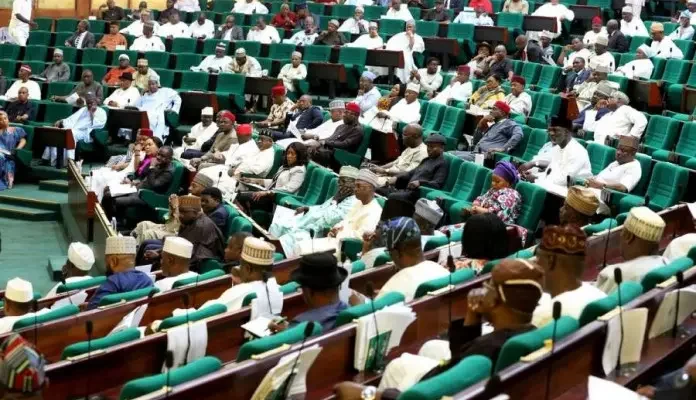613
By Tracy Moses
The House of Representatives on Tuesday, May 13, 2025, passed a Bill through second reading, seeking the inclusion of Inter-University Centres among those eligible for funding under the Tertiary Education Trust Fund (TETFUND) Act, aimed at boosting training and research efforts.
The proposed legislation, titled “A Bill for an Act to Amend the Tertiary Education Trust Fund Act, No.16, 2011, to Include Inter-University Centres as Beneficiaries of the Tax Imposed Under the Act; and for Related Matters HB.1754,” was introduced by Deputy Speaker Hon. Benjamin Okezie Kalu, alongside eight others.
Inter-University Centres, such as the National Mathematical Centre (NMC) in Abuja, the National Institute for Nigerian Languages (NINLAN) in Aba, the Nigerian French Language Village (NFLV) in Badagry, Lagos, and the National Arabic Language Village in Ngala, Borno State, would stand to benefit from this amendment if passed.
During the debate on the Bill’s general principles, one of its co-sponsors, Hon. Tolani Shagaya, reminded the chamber that TETFUND was established by the Tertiary Education Trust Fund (Establishment) Act, No.16 of 2011, with the purpose of providing supplementary funding to public tertiary institutions nationwide. He emphasized that the Fund has become one of the most successful frameworks in Nigeria’s education sector, enhancing infrastructure, improving teaching resources, and fostering research and innovation.
However, Shagaya noted a critical gap in the current system: the exclusion of Inter-University Centres from receiving support under TETFUND, despite their significant role in advancing higher education across the country.
These centres, set up by National Assembly Acts to serve all universities, have not received any support from TETFUND, even though their academic and research efforts directly benefit the university system that the education tax is meant to support.
He argued that this amendment is essential for fairness, inclusion, and academic progress. Passing the Bill, he said, would significantly contribute to the continued growth of Nigeria’s tertiary education system.
“Inter-University Centres contribute to the entire university ecosystem by providing specialized expertise, facilitating advanced research, offering nationwide language training, and promoting academic cooperation across institutions. However, because they are not classified as conventional universities, polytechnics, or colleges of education, they have been excluded from the funding mechanisms available to similar institutions. This exclusion has left them underfunded, under-resourced, and overlooked, despite their national importance,” Shagaya explained.
He further highlighted that the Bill aims to correct this oversight and ensure that Inter-University Centres are appropriately recognized and supported for their contributions. The proposed amendments to the Principal Act include: (a) an update to Section 4 to formally include Inter-University Centres under the Act; (b) an adjustment to Section 7, establishing a new allocation and distribution ratio of 2:1:1:1 to ensure funding for these centres (with potential modifications during the Committee Stage after consultations with stakeholders); and (c) a revision of Section 20 to provide a clear definition of “Inter-University Centres.”
“This is a pragmatic and inclusive reform that ensures no vital educational institution is left out. By recognizing Inter-University Centres as eligible recipients of TETFUND support, we can empower them to become more effective contributors to the nation’s higher education framework,” Shagaya concluded.
Following the debate, the Deputy Speaker, Rt. Hon. Benjamin Kalu, who was presiding over the session, called for a voice vote, and the Bill was passed. It was subsequently referred to the TETFUND Committee for further consideration.



